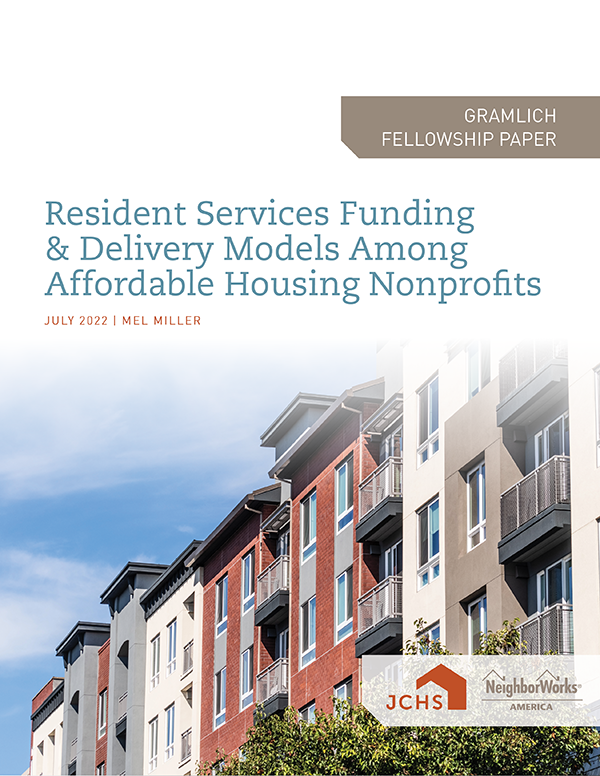Resident Services Funding & Delivery Models Among Affordable Housing Nonprofits
Resident services utilize housing as a platform to advance the physical, emotional, and financial health of residents. Programs address a range of needs including early childhood and K-12 education, health and well-being, workforce development, food security, long-term supportive housing, tax preparation, and eviction prevention and/or financial capability services. While the efficacy of resident services is well documented, the COVID-19 pandemic highlighted the importance of delivering resident services through housing. Even amidst stay-at-home orders, residents maintained connections to community, support, and education, with particular focus on eviction prevention. While COVID-19 has altered service delivery and funding, the field of resident services has evolved separately from the pandemic. Federal funding history over the past three and a half decades provides insight into the field, however the complexity of funding and delivery for resident services is not well known.
The purpose of this research, conducted while the author was a Gramlich Fellow at the Center, was to address three primary questions: (1) what are the resident services offered by affordable housing nonprofits, (2) how are these resident services funded, and (3) how are these resident services delivered? To address these questions, Mel Miller focused on resident services that are delivered to residents of affordable housing owned or managed by nonprofits within the NeighborWorks® America network. She utilized primary and secondary data, with a focus on a fielded survey disseminated to 185 NeighborWorks organizations. The 74 survey responses, along with 19 pre- and post-survey interviews with NeighborWorks organizations and other resident service experts, provided insight into not only current funding and delivery models, but also organizational and policy needs and desires.

